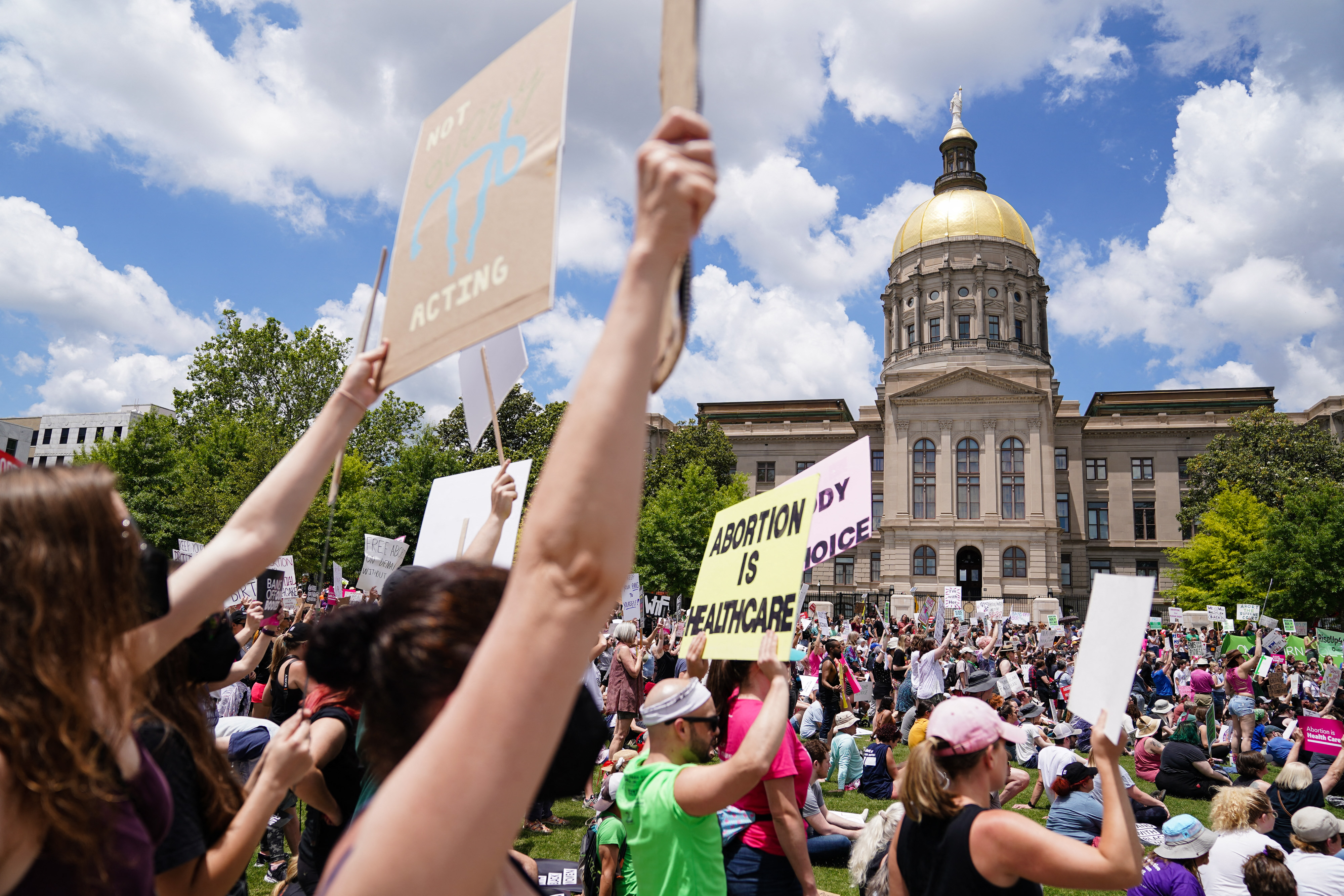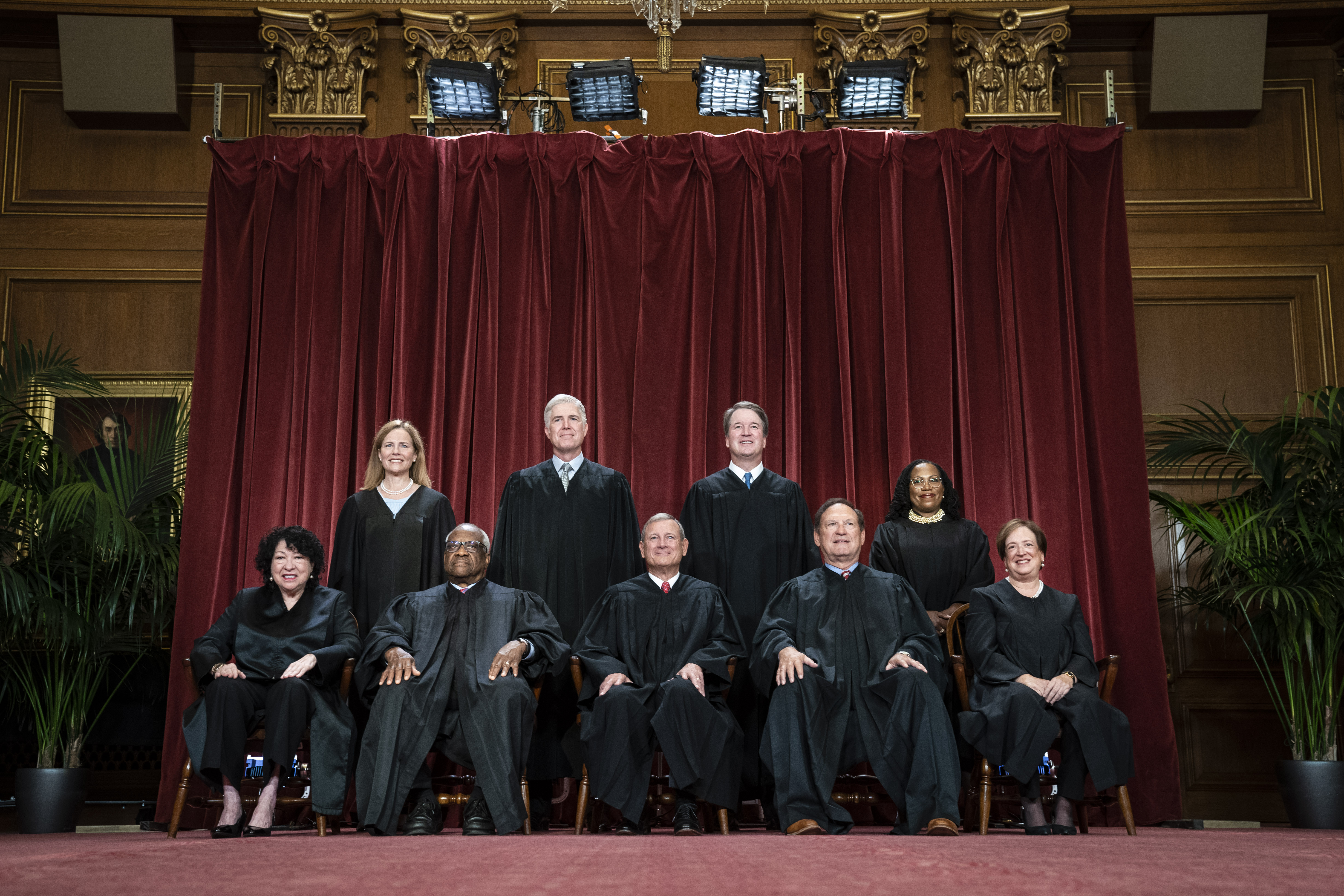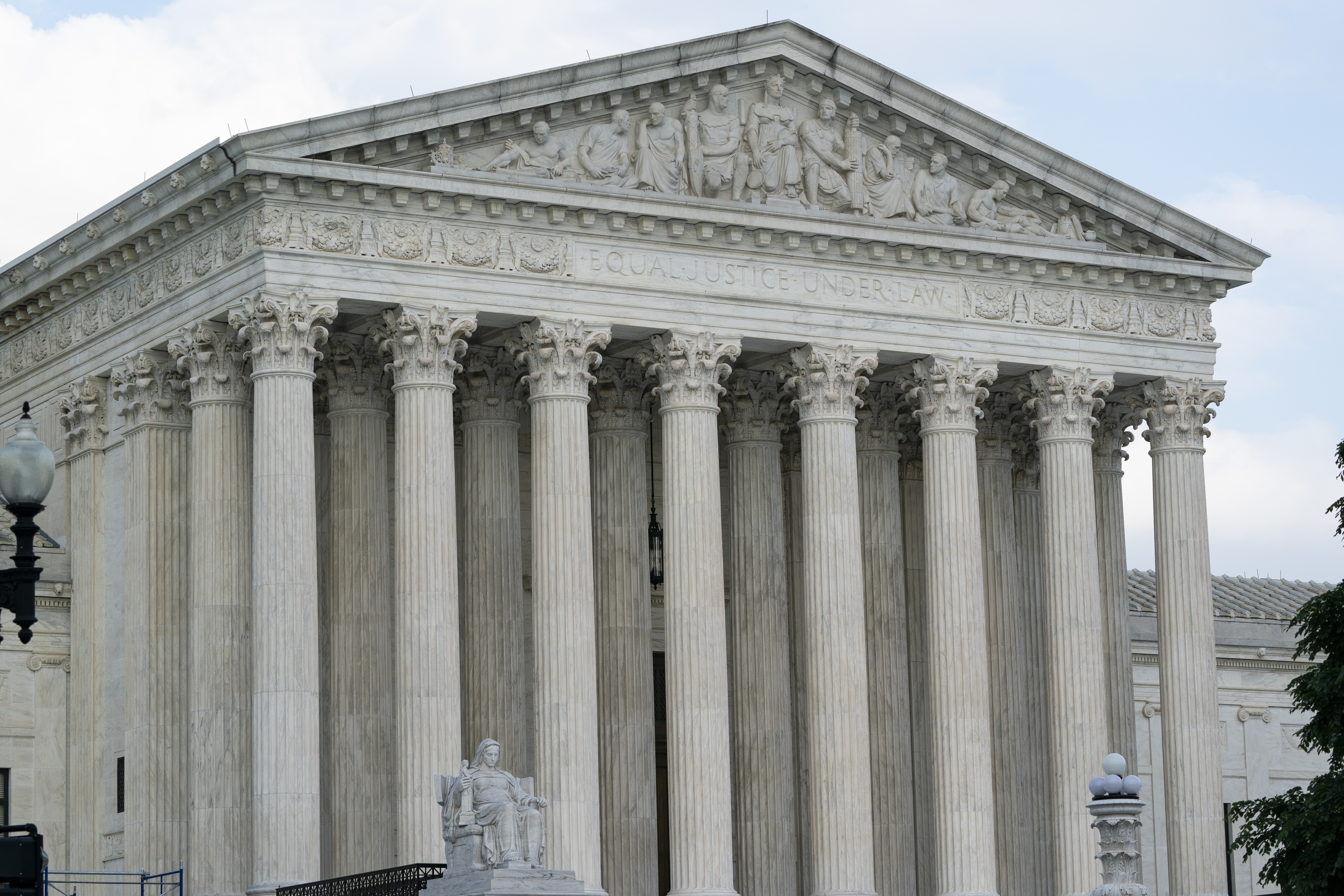The Supreme Court on Tuesday signaled it is likely to uphold the Biden administration's move to regulate "ghost gun" kits that allow people to assemble deadly weapons at home while skirting existing regulations.
Based on the questions that liberal and conservative justices asked in oral arguments, the Biden administration might secure a majority that would leave the new rules in place, which regulate the kits same way as other firearms. That would mean manufacturers and sellers of the kits would have to obtain licenses, mark the products with serial numbers, require background checks and maintain records.
The federal Bureau of Alcohol, Tobacco, Firearms and Explosives, which issued the restriction in 2022, says ghost guns are regularly used by violent criminals precisely because they are difficult to trace.
The new regulation clarified that the parts used to make ghost guns fit within the definition of “firearm” under the federal Gun Control Act, meaning the government has the power to regulate them the same way it regulates firearms made and sold through the traditional process.
Get Tri-state area news delivered to your inbox. Sign up for NBC New York's News Headlines newsletter.
The restriction is currently in effect, with the Supreme Court last year refusing to block it while litigation continued. That decision, which was 5-4, could give an indication of how the justices will ultimately decide the case.
Then, Chief Justice John Roberts and fellow conservative Justice Amy Coney Barrett joined the three liberal justices in the majority.
During oral arguments, it appeared the court might be split along similar lines when it issues its final ruling, with the possibility of an even more lopsided vote in favor of the government.
Roberts appeared skeptical of the basic premise that ghost guns are sought out by hobbyists who want to use their leisure time to build firearms in the same way that other people might work on their cars, in part because the kits can be assembled in a matter of minutes.
"Well, I mean drilling a hole or two, I would think, doesn't give the same sort of reward that you get from working on your car on the weekends," he said.
Peter Patterson, the lawyer representing the challengers, appeared to gain little traction, with Barrett saying that his alternative interpretation of the law “seems a little made up.”
She also noted that although ghost gun kits did not exist when the Gun Control Act was enacted, it was intended to encapsulate parts that could be purchased, for example, to convert a semi-automatic firearm into a machine gun.
Conservative Justice Samuel Alito seemed most responsive to the challenger's arguments. At one point, to illustrate his view of how the rule restricts basic materials that do not fit the definition of "weapon" in the gun law, he held up a blank sheet of paper and a pen and said: "Is this a grocery list?"
Along similar lines, he asked Solicitor General Elizabeth Prelogar, who was defending the regulation, whether some eggs, ham, pepper and onions laid out on a kitchen counter would constitute a Western omelette.
At that point, Barrett jumped in, wondering if the correct comparison to the ATF rule would not be the raw ingredients but rather a meal kit ordered online from Hello Fresh, a company that sells such products.
Prelogar called Barrett's version an "apt analogy" because the government is "not suggesting that scattered components that might have some entirely separate and distinct function could be aggregated and called a weapon."
Just as a ghost gun kit can be used to quickly make a working gun, buying the omelette ingredients is something "that can be readily converted to make breakfast," she added, echoing the language of the gun statute.
The Gun Control Act states that the regulations apply to “any weapon ... which will or is designed to or may be readily be converted to expel a projectile by the action of an explosive.” It also covers the “frame or receiver of any such weapon.” The frame or receiver is the part of a firearm that houses other components, including the firing mechanism.
In court papers, the Biden administration referred to an “urgent public safety and law enforcement crisis posed by the exponential rise of untraceable firearms.”
Prelogar pointed out in court that after the Biden restrictions went into effect, the market for ghost guns "essentially collapsed," suggesting that hobbyists were not the primary customers.
"The reason why you want a ghost gun is specifically because it's unserialized and can't be traced," she said.
New York City alone has seized hundreds of ghost guns and related parts, according to a brief filed by Manhattan District Attorney Alvin Bragg.
The case reached the Supreme Court after Texas-based U.S. District Judge Reed O’Connor last year ruled in favor of Jennifer VanDerStok and Michael Andren, who own components they want to use to build guns. Plaintiffs also include gun rights groups and the makers and sellers of ghost guns.
The New Orleans-based 5th U.S. Circuit Court of Appeals mostly ruled for the challengers.
The challengers focus on the text of the Gun Control Act, saying in their brief that the law simply doesn't apply to gun kits. The ATF does not have unilateral authority to regulate ghost guns, with Congress required to act if it wants to do so, they argue.
In addressing the government's claim that criminals favor ghost guns, Patterson said in court that hard-to-trace guns can also be privately manufactured or purchased on the secondary market.
The regulation significantly expands on the language in the law by saying that items that can easily be converted for use as a frame or receiver are covered, lawyers for the the challengers wrote.
Although it is a gun case, the legal question does not turn on the right to bear arms under the Constitution's 2nd Amendment.
The case comes just months after the court, which regularly backs gun rights, ruled that a federal ban on bump stocks — a gun accessory used to allow semiautomatic rifles to fire quickly — was unlawful. In another gun case that marked a win for the Biden administration, the court in June upheld a federal law that bars people subjected to domestic violence restraining orders from possessing firearms.
This story first appeared on NBCNews.com. More from NBC News:




